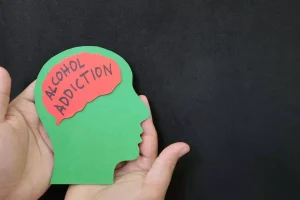Guilt and Shame in Recovery: Understanding and Overcoming

Reshaping personal narratives is also vital in this transformation. Through narrative therapy, individuals can re-evaluate and recount their past experiences, focusing on growth rather than guilt. Incorporating positive affirmations can further transform negative self-talk into empowering narratives. By fostering an empathetic and compassionate outlook towards oneself, individuals can effectively navigate the emotional challenges of recovery, enhancing overall well-being.
Overcoming Guilt and Shame in Addiction Recovery
Admitting that you have made mistakes and done something wrong stops the cycle and frees us from our prison of guilt and shame. You can face your wrongs and take responsibility by verbalizing what you have done and preparing yourself to accept the consequences. This article will help you understand the importance of dealing with guilt and shame in recovery and help you find support as you work through the process. Dr. Small’s professional experience encompasses General Psychiatry, Addiction Psychiatry https://ecosoberhouse.com/article/signs-and-symptoms-of-alcohol-dependence/ and Family Medicine. These compassionate services are reliable, responsive, personable, and evidenced based.
How To Start the 4th Step Inventory Process

First, it’s essential to separate one’s identity from past actions. Individuals need to understand that their guilt and shame in recovery mistakes do not define them. This shift in mindset allows for a clearer perspective on personal worth, fostering self-acceptance.
HEALING BEGINS WITH HOPE
When we face both guilt and shame head-on, we stop carrying their weight with us. We begin to see that while we made mistakes, we are not our mistakes. These steps allow us to separate what we’ve done from who we are, helping us embrace the truth that we are worthy of healing, forgiveness, and a new life in recovery.
By recognizing these feelings—accepting responsibility for actions that may have harmed others—individuals can embark on a crucial path towards self-forgiveness. Understanding that guilt is a natural reaction to wrongdoings enables a person to use it as a motivator, rather than letting it spiral into despair. This involves acknowledging past actions, understanding their impact, and apologizing, which can lead to emotional relief and support the recovery process. Developing a support network is also essential; it provides a safe space to share feelings and encourages alcoholism personal growth.
- Individuals recovering from addiction often grapple with intense feelings of guilt and shame.
- Cognitive restructuring, a technique used in cognitive behavioral therapy, can help you reframe these thoughts.
- You deserve recovery, and with the right resources and mindset, you can achieve it.
- However, excessive or unresolved guilt may lead to feelings of remorse and self-blame, which, if not managed, can cause emotional exhaustion.
How Can Self-Forgiveness Play a Role in Healing from Guilt and Shame During Addiction Recovery?

Learning to manage negative self-conscious emotions starts with self-compassion. This involves recognizing one’s humanity and letting go of Retributive blame. It is a powerful tool to challenge the connection between shame and worthlessness.

Keep going—you are becoming the person you were always meant to be. The 5th step gives us a chance to shed the identity that shame created. No longer do we have to carry the belief that we are broken or unworthy.

The anonymity and confidentiality of these services help reduce the fear of stigma, encouraging more people to seek assistance when they need it most. Mindfulness practices, including meditation or deep-breathing exercises, help individuals stay grounded in the present moment and observe their emotions without judgment. Guilt and shame play a vital role in recovery but can also lead to a downward spiral if not addressed.
Peer support also plays an important role in addiction recovery by providing individuals with a sense of community, connection, and empathy. Peer support groups like Alcoholics Anonymous or Narcotics Anonymous provide participants with regular meetings where they can share their experiences openly without fear of judgement. Joining a 12-step program is another powerful tool that individuals in addiction recovery can use to promote long-term sobriety. These programs provide ongoing support from peers who have gone through similar experiences and share similar goals. By creating works of art, individuals can explore their inner selves and express repressed emotions in a safe and non-judgmental environment.
